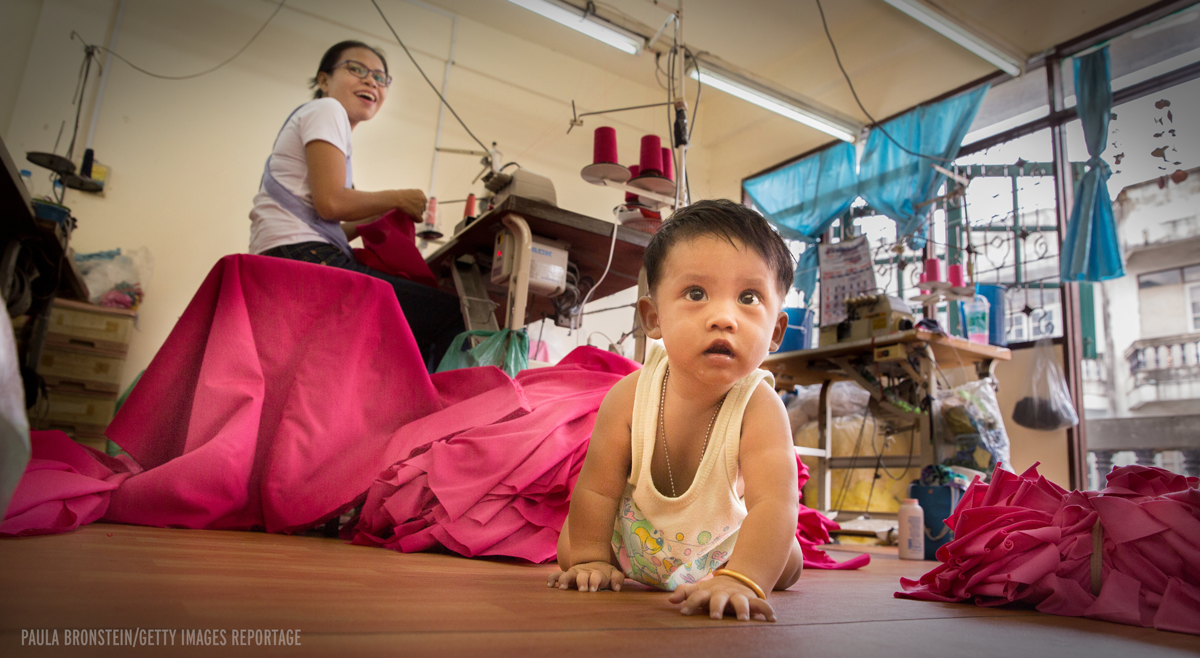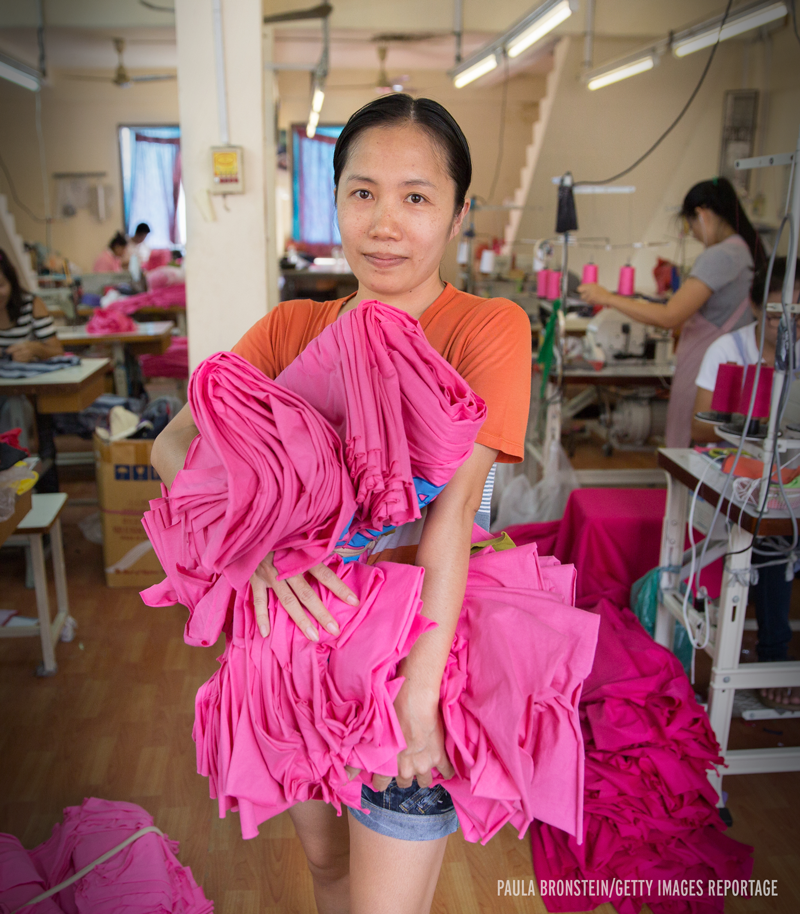Caring About Women’s Work: Why Sexual and Reproductive Rights Matter
The sexual and reproductive health and rights (SRHR) of women and girls are too often sidelined from key policy debates on women’s rights: dismissed as controversial and separate to discussions on women’s economic and political lives. Decision-makers and politicians silo different aspects of women and girls’ lives in policy initiatives, neatly separating rights related to bodily autonomy from workplace rights in ways that are neither realistic nor helpful.
The lives of women and girls are complex, varied and intersectional. SRHR cuts across every aspect of women and girls’ lives, both enabling and limiting life opportunities. The freedom to decide if and when we marry and have children, to live free from violence, and to make decisions regarding our bodies are key to empowering women economically.

Recent studies suggest the positive influence of lower fertility in women's economic participation: globally, female labour force participation decreases with each additional child by about 10% to 15% among women aged 25 to 39.[1]
Despite this trend, it is important to look behind the numbers, and assess the extent to which women's work is empowering. ‘Women’s economic empowerment’ is a term that has come to mean everything and nothing in policy terms, not only because the concept of ‘empowerment’ is so difficult to measure. Rather than view women’s economic empowerment solely within the prism of economic growth, we must unpack the complex systems that uphold women’s inequality, and avoid falling into the trap of assuming women’s formal labour force participation and contribution to the market economy is necessarily empowering. We must instead look at how our current economic models uphold women’s inequality and identify where women work and why they work, as well as the quality of their working conditions.
Women’s work
Much of women’s work remains hidden and unpaid. A major reason for this is that women around the world are disproportionately responsible for undertaking care work. Care work is mostly unpaid labour undertaken by women and girls such as child care, elder care, taking care of ill family members, cooking and cleaning. The ‘care economy’, which includes paid and unpaid care work and is primarily undertaken by women and girls, and has an impact on their life opportunities outside of the home.
The level of care work affects women's access to sexual and reproductive health services; women and girls who are shouldering the lion's share of care work in the home may not have the time or the resources to go to a clinic, to access contraceptives or to receive critical ante- and post-natal services. Moreover, without access to essential services such as family planning, women cannot choose if and when and how many children to have. This can increase their care burden and exacerbate already existing inequalities in women's share of care-giving, as well as the health and economic consequences that result from unplanned and/or frequent pregnancies, such as unsafe abortions.
Women's care work affects their ability to find and stay in work outside of the home. For example, a woman may be unable to commit to a formal job at regular times every day because she is required to be at home to look after others and perform household tasks. This may lead her to take up work in the informal sector which offers more flexibility (for example, in working hours, location and so on), but also more insecure and precarious working conditions. Work in the informal economy tends to offer fewer benefits than work in the formal wage economy, with specific effects on sexual and reproductive health and rights. For example, domestic workers and sex workers are often particularly vulnerable to sexual assault and other forms of abuse, as well as greater exposure to HIV.
Supporting women in work
As well as ensuring that high quality and decent jobs are available, it is important that women have support once they are in work. Studies find that women's empowerment in formal wage employment is tied to the presence (or lack) of regulatory frameworks that support women's sexual and reproductive rights and caring responsibilities. The most frequently cited policies are parental leave, child care and access to contraceptives, as they ease the care burden that many women face.

Lack of these policies, together with a lack of policies which seek to distribute care work evenly (both between women and men and between the state and private households) are cited as reasons that women in many regions remain in the informal or agricultural sectors, and are therefore more vulnerable to poverty and ill health.
In addition to targeted child care and parental leave programmes, on-site health programmes can also support women in work. For example, in Cambodia, thousands of young women from rural areas move to cities to work in factories, and for these women, SRHR services remain inaccessible due to cost or limited opening hours. IPPF's Member Association, the Reproductive Health Association of Cambodia (RHAC), is responding to this unmet need by providing information and free services to women working in factories. RHAC has established formal partnerships with 30 factories in three major urban areas of Cambodia. The factory workers are given vouchers for a range of free sexual and reproductive health services including contraception, post-abortion care, cervical cancer screening and treatment, HIV counselling and testing, referrals for antiretroviral treatment, and testing and treatment for sexually transmitted infections. Similarly, in Nepal, a series of youth-led classes on sexual and reproductive health and rights for female factory workers, which included information on safe abortion, was not only successful in itself, but the young women who were trained as peer educators also gained additional organizational and mentoring skills.[2]
Putting SRHR at the heart of the agenda on women’s economic empowerment
Looking ahead, the High Level Panel on Women's Economic Empowerment presents a unique opportunity to put SRHR at the heart of the agenda on women’s economic empowerment. We must approach women’s lives in a joined up way. Increased political prioritization and investment in SRHR is needed to understand the interlinkages between women’s bodily autonomy, unpaid care work and access to decent work. Only such an approach will enable women and girls to make informed and empowered choices about our bodies, our families and our livelihoods.
[1] Grepin KA and Klugman J (2013) Investing in Women's Reproductive Health: Closing the Deadly Gap Between What we Know and What we Do. Washington: World Bank. Available at Accessed 14 January 2015.
[2] Ipas (2013) Empowering Women Workers through Youth-led Education on Reproductive Health and Safe Abortion in Nepal. Available at Accessed 16 December 2014


